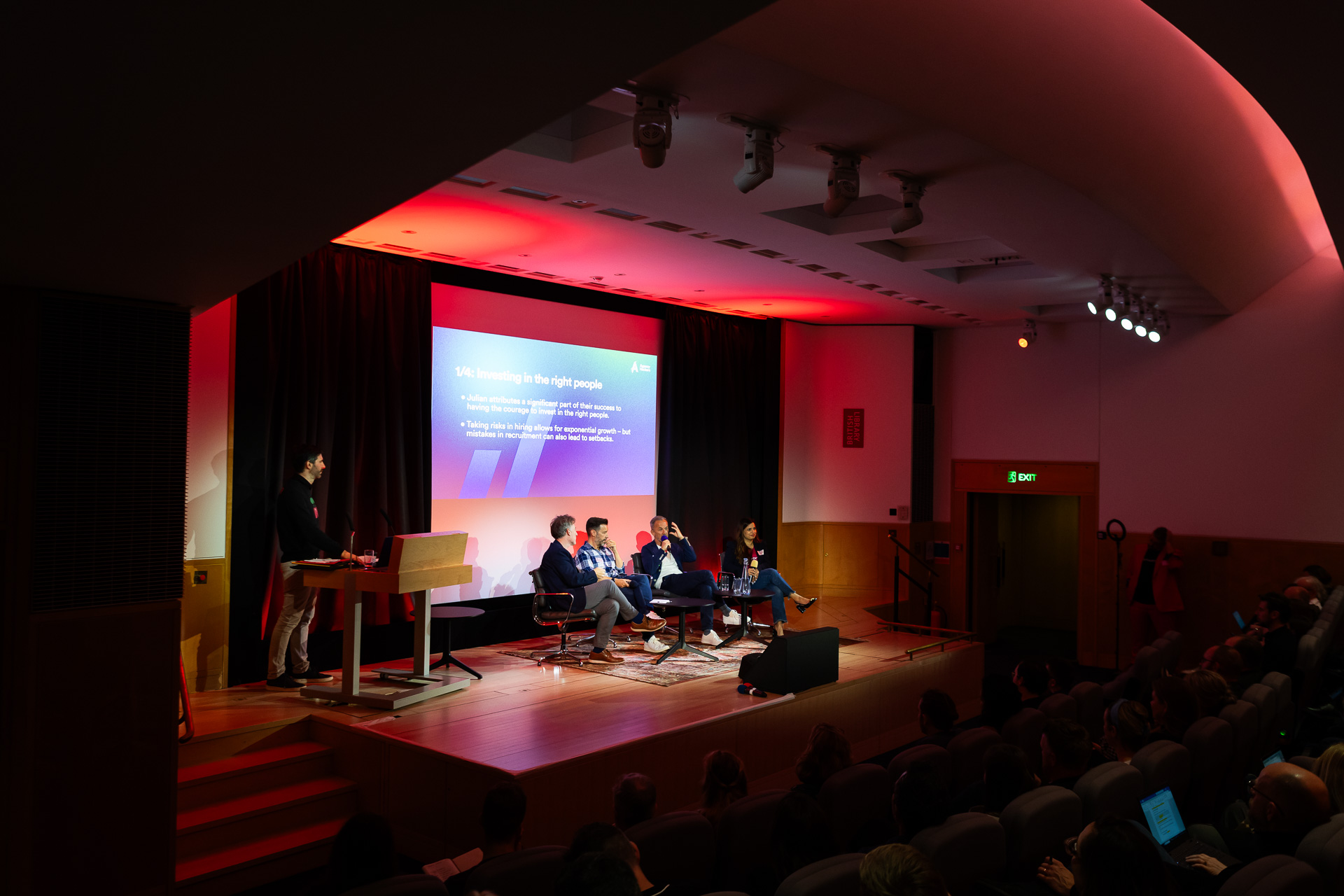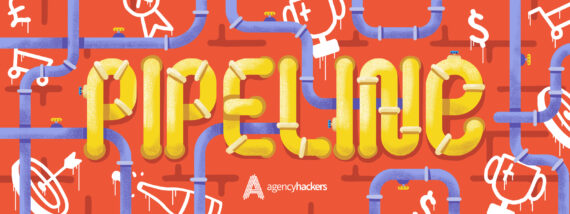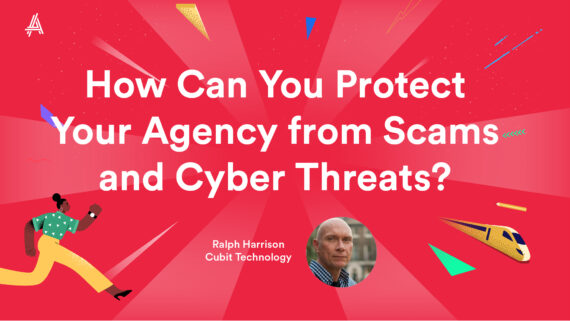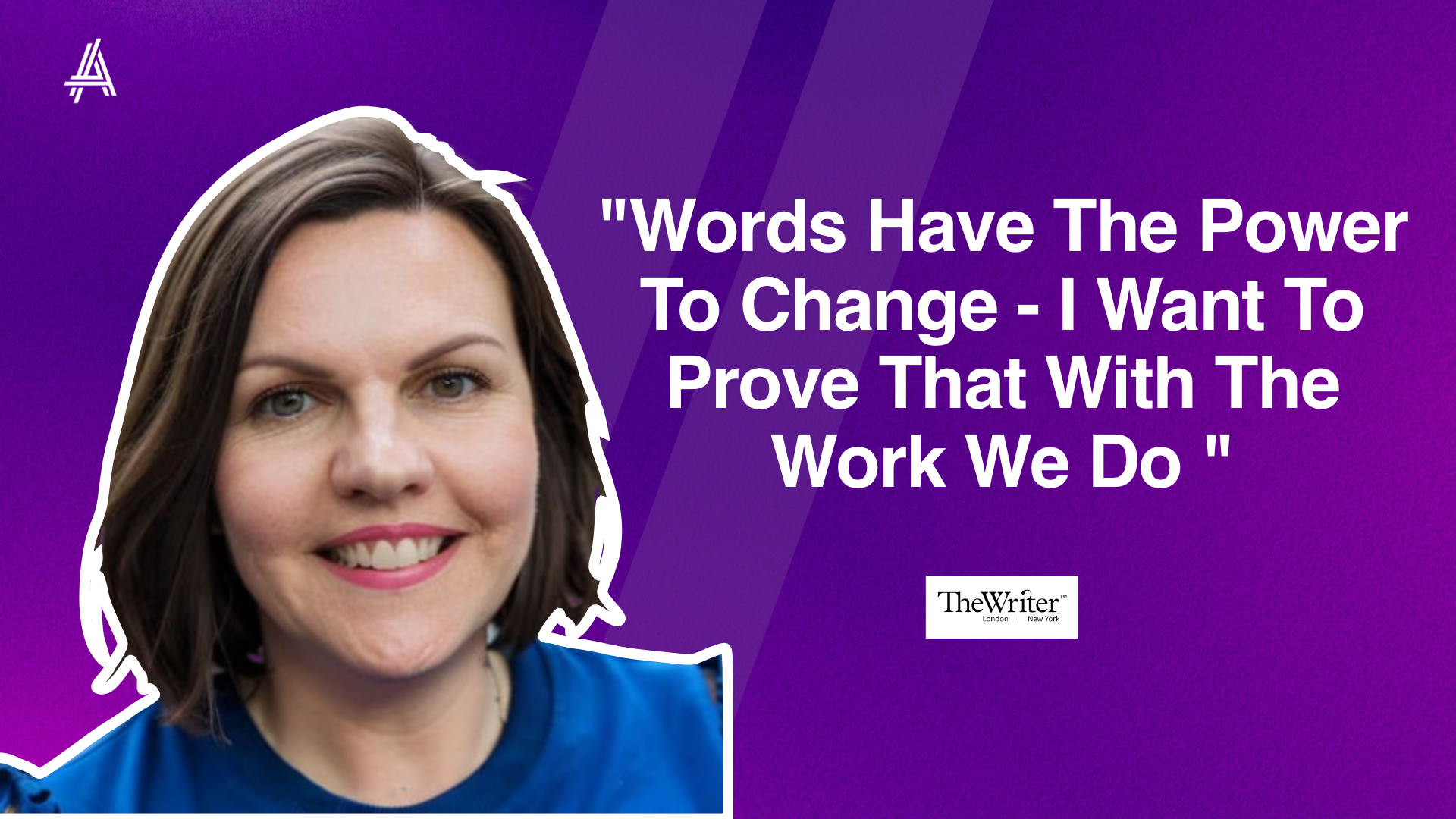
There’s a Simpsons episode where the producers of ‘Itchy & Scratchy’ run a focus group.
They ask Bart and his friends:
“How many of you kids would like Itchy & Scratchy to deal with real-life problems, like the ones you face every day?”
The children all cheer and agree. Then, he asks:
“And who would like to see them do just the opposite – getting into far-out situations involving robots and magic powers?”
The children all cheer and agree.
“So, let me get this straight – you want a realistic, down-to-earth show… that’s completely off-the-wall and swarming with magic robots?”
“Yeah, that!” says Millhouse.
I like this scene because it reminds me of running a conference.
We always ask for feedback about our events. We ask what people liked – and what (if they were in charge) they would change.
Our job is to pick through the sometimes conflicting responses and figure out how we can improve.
Agency Growth Summit – 7.7 out of 10
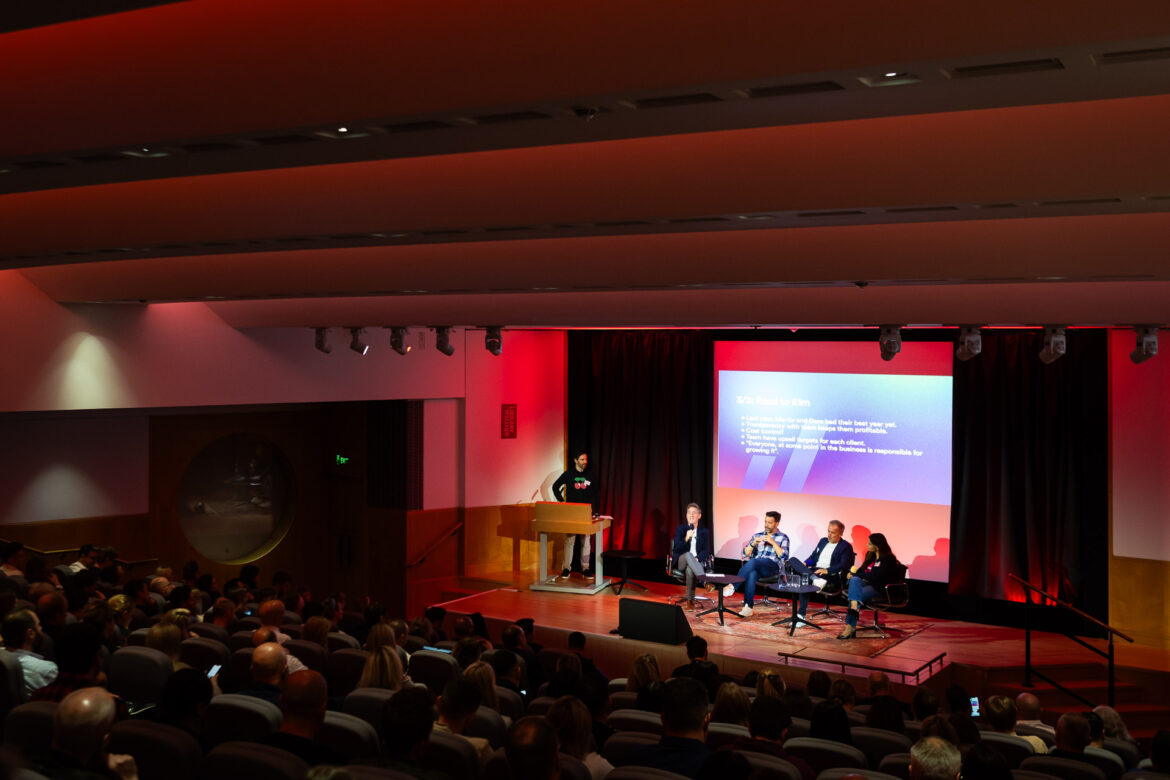
We ran Agency Growth Summit at The British Library on March 21st 2024. Afterwards, we asked people what they thought.
We always ask people for feedback after our events. Because I am paranoid that people won’t bother to reply, we go to great length to convince them that we’re actually going to read it. (Which we do.)
Part of this includes our commitment to publish this very blog post detailing all the stuff they liked and didn’t like.
So without further ado, here’s what we learned – warts and all.
- We had 220 people attend and 55 people gave us their feedback.
- People generally gave us very detailed comments – which we’re very grateful for.
- The average score was 7.7 out of 10:
10 Stars: ⭐️⭐️⭐️⭐️⭐️⭐️⭐️⭐️⭐️⭐️ 6 people
9 Stars: ⭐️⭐️⭐️⭐️⭐️⭐️⭐️⭐️⭐️ 12 people
8 Stars: ⭐️⭐️⭐️⭐️⭐️⭐️⭐️⭐️ 19 people
7 Stars: ⭐️⭐️⭐️⭐️⭐️⭐️⭐️ 4 people
6 Stars: ⭐️⭐️⭐️⭐️⭐️⭐️ 7 people
5 Stars: ⭐️⭐️⭐️⭐️⭐️ 3 people
4 Stars: ⭐️⭐️⭐️⭐️ 1 person
3 Stars: ⭐️⭐️⭐️ 2 people
2 Stars: ⭐️⭐️ 0 people
1 Star: ⭐️ 0 people
7.7 out of 10 is good. It’s knocking on the door of great, but it’s nowhere near excellent.
I heard there’s another big conference in our industry that doesn’t look at their feedback. “What’s the point?” they probably think. Some people love it, some people hate it – what are you ever going to learn?
I guess that’s one approach.
At Agency Hackers, we are not yet at the point where we can do that. We might get there one day, but for now we honestly have a long way to go before we decide we have nothing left to learn.
Conclusion: big events are different
We have been running conferences since 2017, but it’s only in 2024 we’ve really started to strike out into larger conferences with 200+ people.
What we’re finding is that it’s very different to running sub-100 person conferences. As a result, we’re on a rapid learning curve.
Thankfully, we are now at the stage where we no longer get comments about our events being disorganised or badly run. Most of the low-hanging feedback fruit has been picked and implemented.
⏺ This time, people said it was a well-organised event with high-quality speakers covering relevant topics.
⏺ People liked the variety of sessions, breakout format, and the networking opportunities.
⏺ However, some felt the networking space was overcrowded and wanted more actionable insights from the content.
⏺ The inevitable tradeoffs of parallel tracks, overall sentiment was positive, with most rating the event highly.
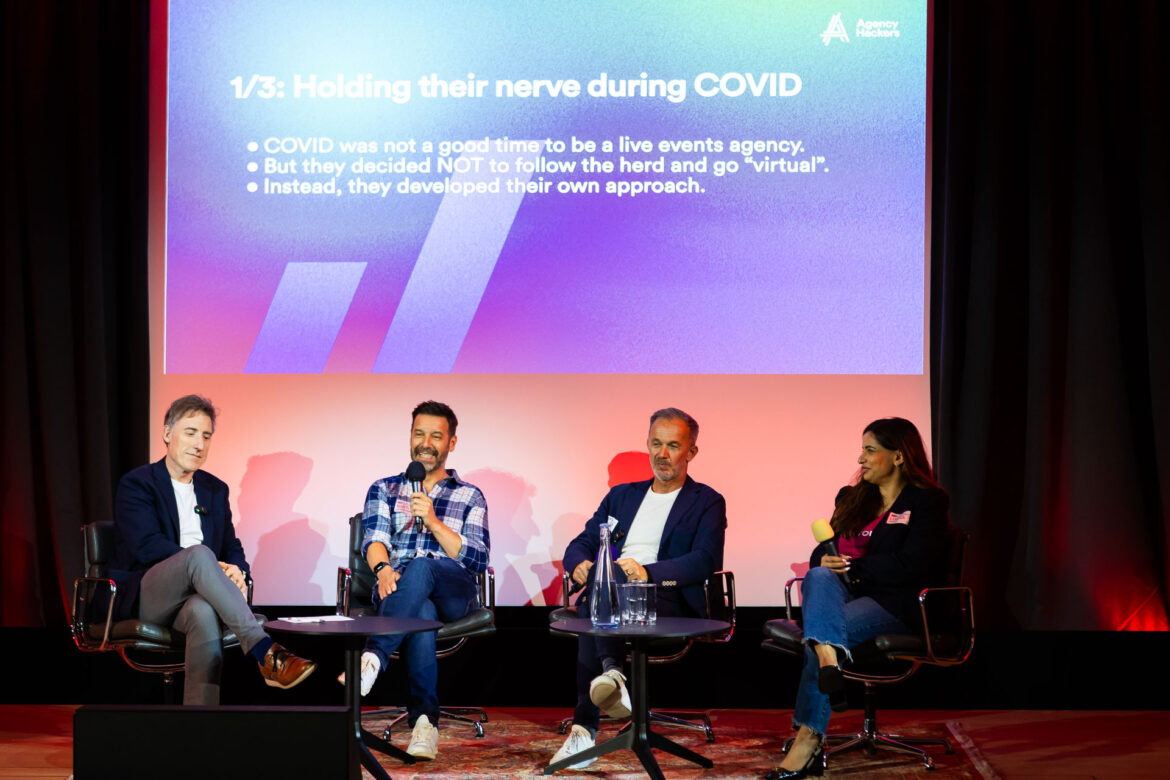
1: People like the tone
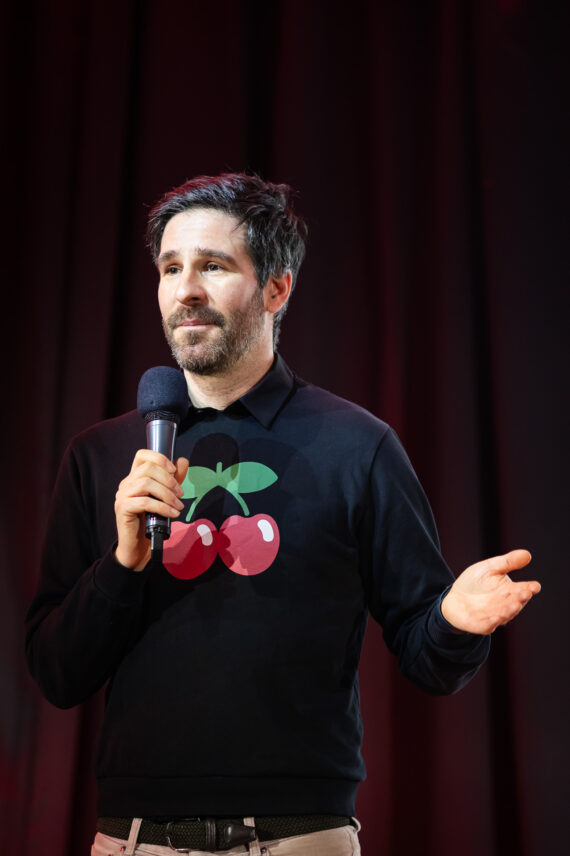
One part is working, anyway.
We always get a lot of comments on the friendly tone and this was no different. That’s heartening because we do think about this quite a lot. I know it looks natural, but it’s deliberate.
When you go to a lot of conferences, the best way I can describe it is, you feel like you are in the room with the adults. So we try hard to keep the tone light and encourage people to open up.
A lot of the silly little jokes we throw in are planned to an embarrassing level.
It’s to make you feel relaxed and welcome:
- “Love the storytelling nature of the sessions. Also the informal, friendly style.”
- “Great vibe, good speakers, good topics and love how much people share.”
- “The AH team are brilliant! The way they kept the speeches moving and facilitated was great.”
2: Some want a half-day conference – but more want a full day conference
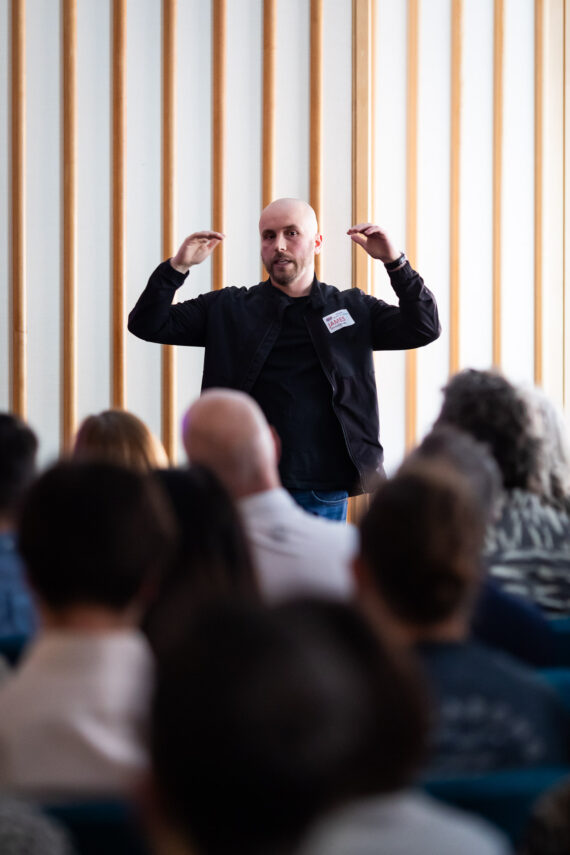
This was a half day conference. Some people felt it was just right – but they were outweighed by the people who felt it was too short, and that it should have been a full day.
Here’s what we learned here:
- Half-day events are generally better for people travelling from outside London.
- “The venue was excellent and the timings really worked. Coming from Scotland (Dundee), the first reasonably timed train into Kings cross arrives at 12.48pm and having such a short walk to the British Library was perfect. 1pm to 5pm is the perfect length for the event.”
- But we got some feedback that the event felt rushed:
- “Possibly too short and snappy? Felt like Ian was hurrying some of the conversations to finish towards the end.”
- “Would have been better being a full day so sessions weren’t as rushed – being so short, didn’t really allow you to get into the details, so talks ended up largely being common sense or theoretical stuff, rather than practical takeaways.”
🦸 Action: Based on this feedback, we decided to make our next event (Clockwork on June 11th) a full day event.
We recognise this isn’t ideal for people travelling from outside London. But we hope by starting at 9.30am it’s still do-able. And if you’re coming from Scotland, we hope that a full day event is valuable enough to justify an overnight stay.
The reason we have avoided full-day event is that they are very expensive to run. It drives the breakeven cost up significantly. (A full-day event isn’t just double the cost – it’s actually 3x to 4x the cost because you also have to factor in lunch. And you can’t charge sponsors or attendees 3x or 4x the cost.)
But we’re at the scale now where we can be confident we’ll sell enough tickets to make this work.
3: We have forgotten about the networking 🤯
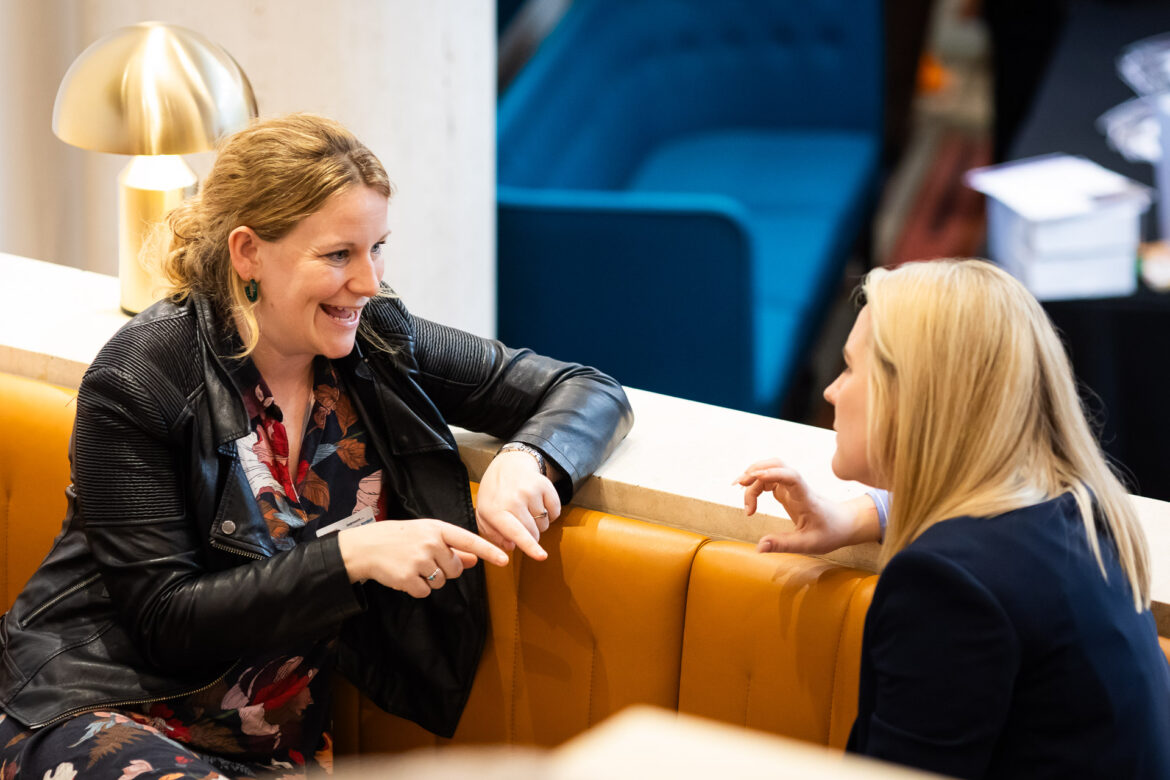
Previously, we have taken great pride in the fact that we use cabaret style seating our conference. (In other words, everyone is sat at round tables.)
This limits the capacity, but it makes the event experience better because you can speak to other people at your table and learn from them.
But as we’re using bigger venues, our last two events have backed away from this. In all the breakout rooms the seating has been rows of seats.
Some people felt this was bad:
“This is the first AH event which I’d describe as good. The rest were all great! So, what was lacking? Table discussions. I’ve been in agency land for a long time. So the presenters rarely tell me anything revolutionary. But the table discussions do! They allow us to build on what was said, evolve our thinking and they usually help me develop some good ideas.”
This is a problem we’re aware of. 😩
In fact, it’s something we have boasted about in the past. So why didn’t we do it?
When you have when you have 200 to 250 people at a conference, the problem is that while everybody can fit in the main theatre at once – everybody can’t fit in the breakout rooms at once unless you lay them out theatre style.
And even then it’s a squeeze.
These are the five rooms we had at The British Library. The only one that can fit everybody in is the main theatre.
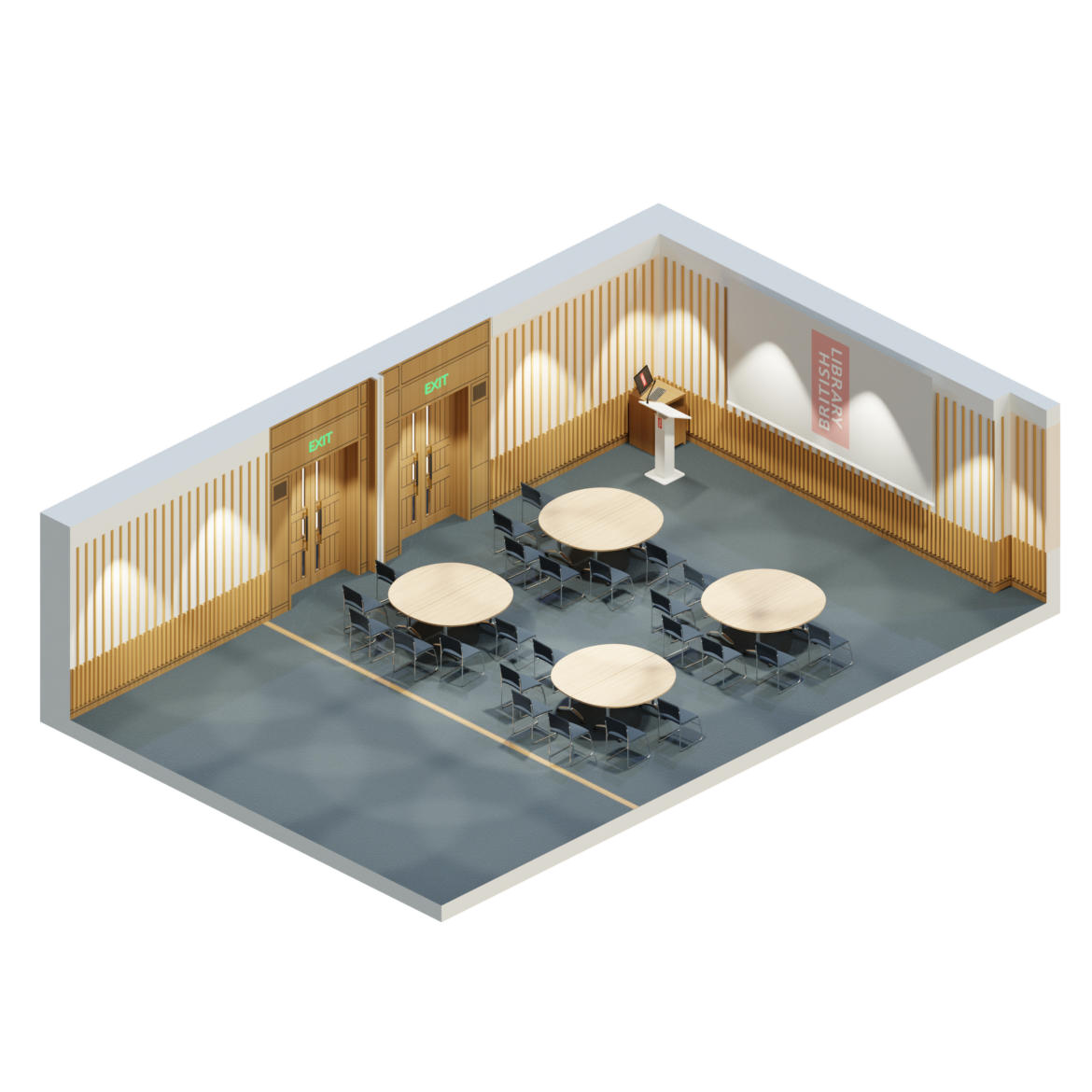
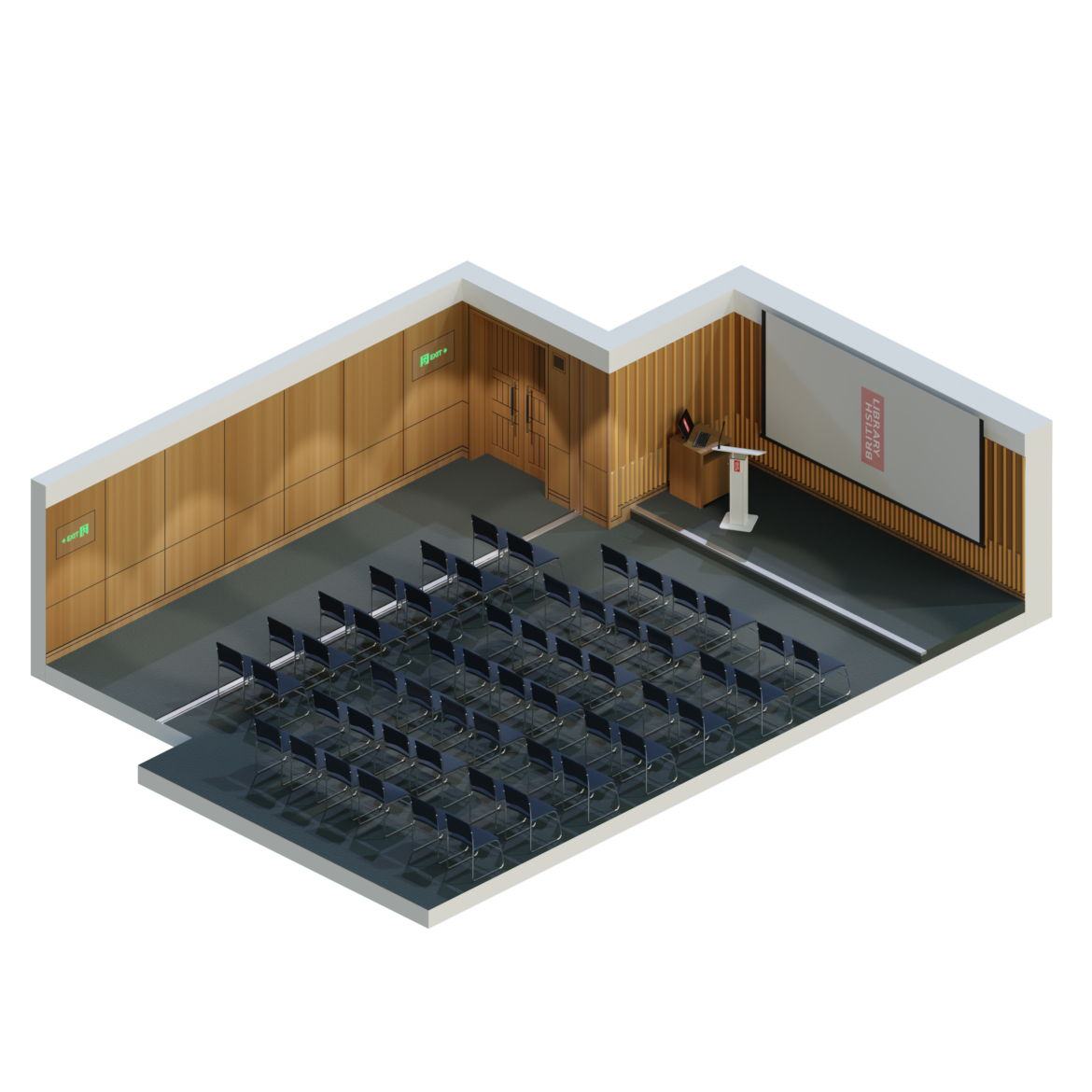
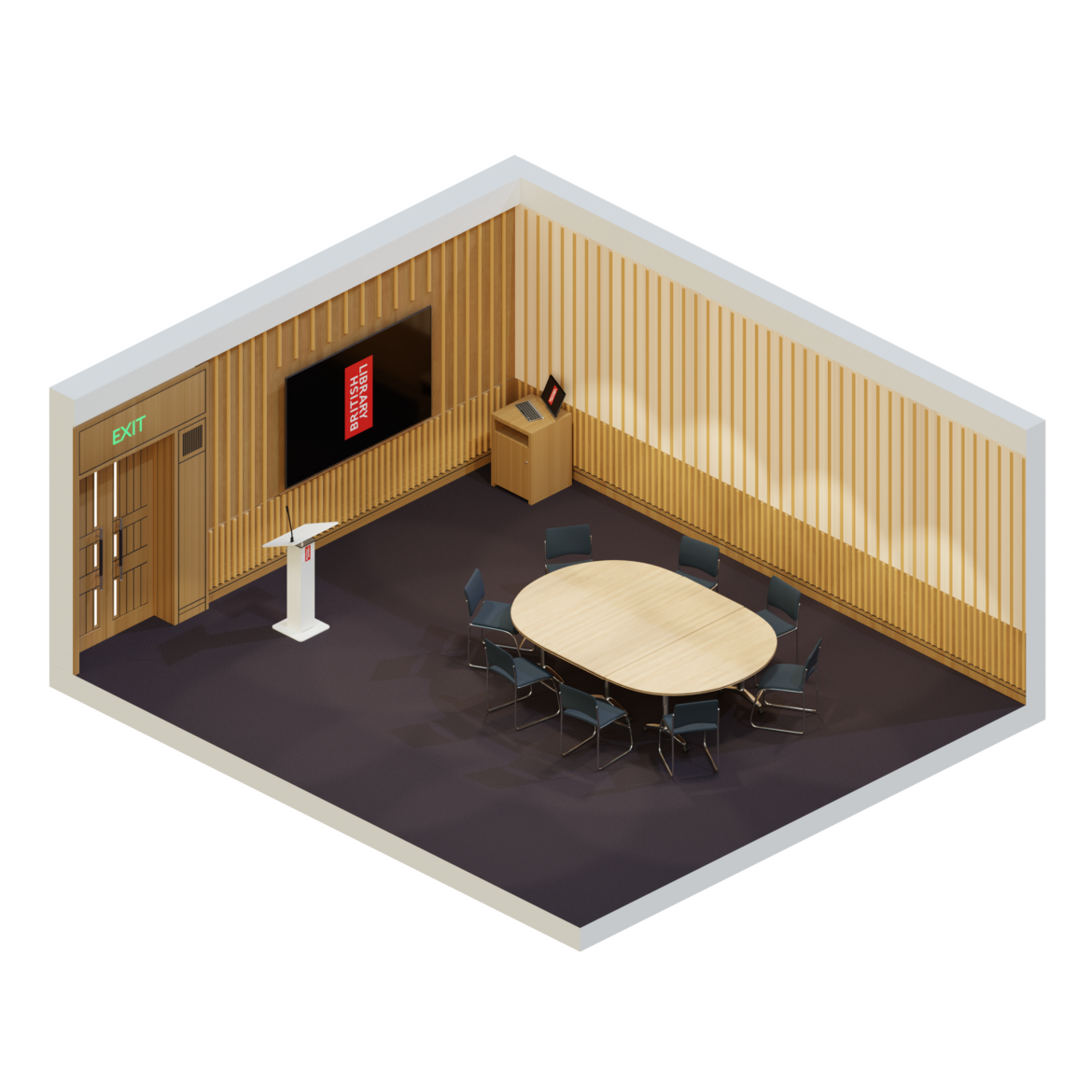
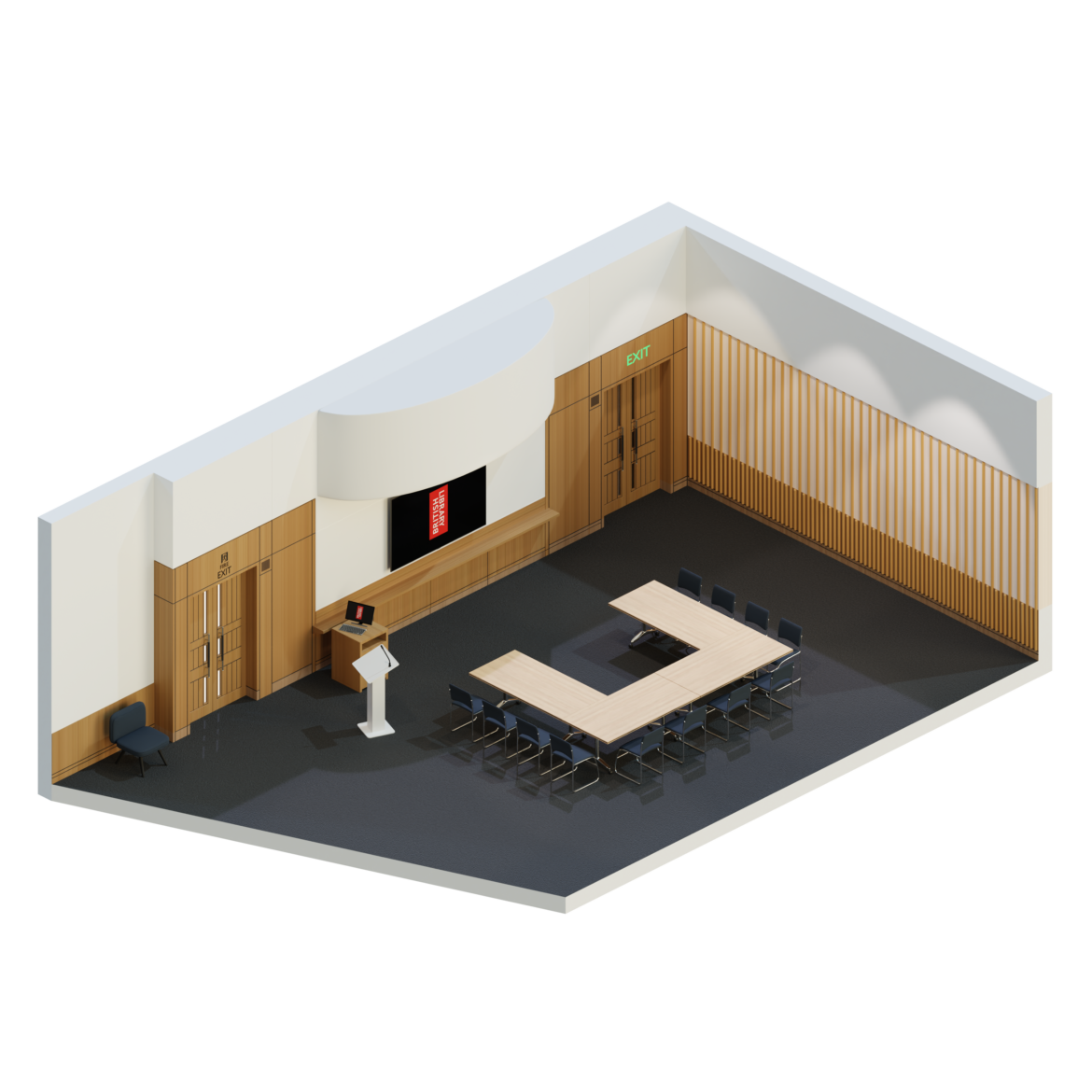
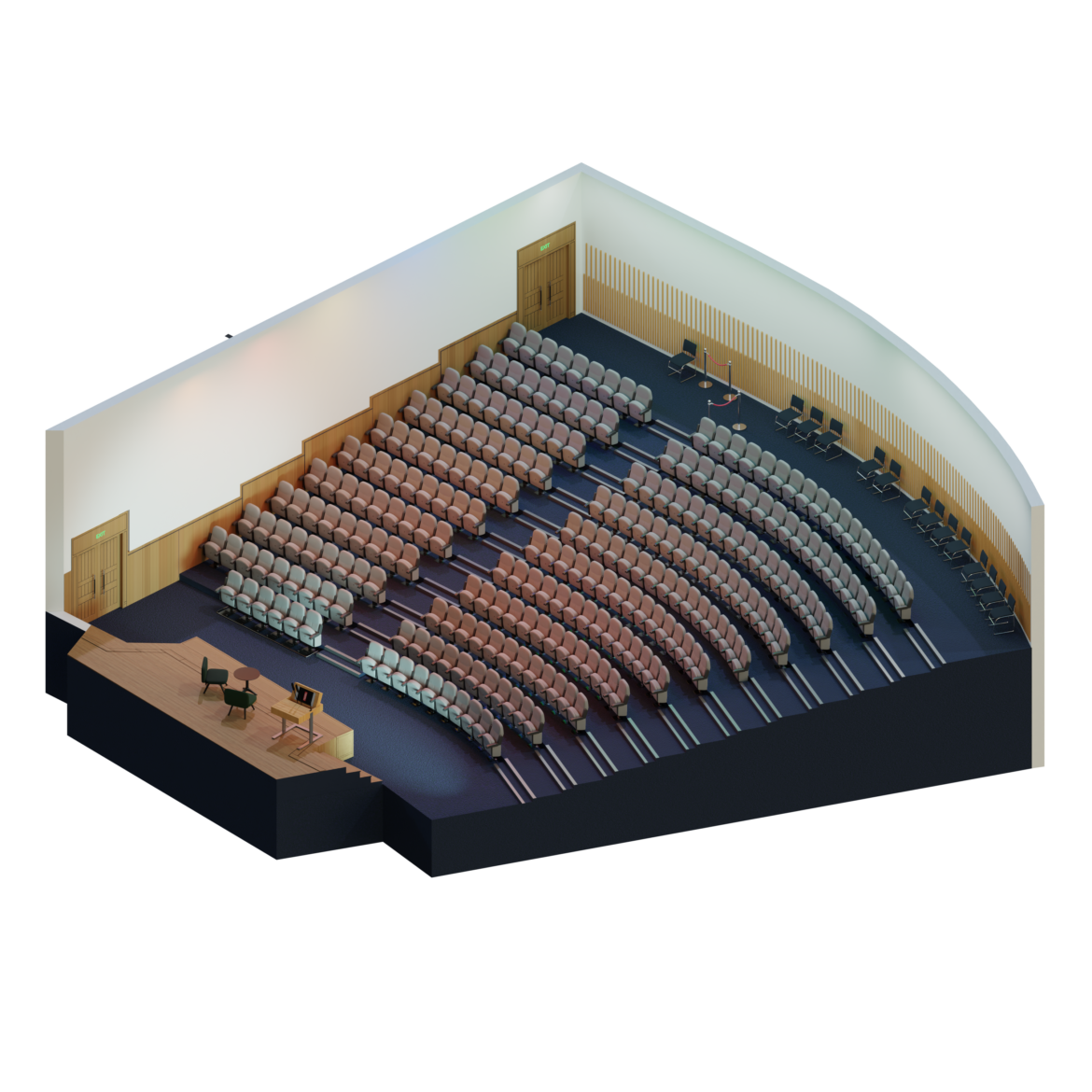
🦸 Action: At our next conference we’re going back to cabaret style seating in the breakout rooms.
This will mean we have to time the event carefully, and split the audience into two segments – Segment A and Segment B. Some of the audience will be in the main theatre (which can hold 250 people), while the other half of the audience will be split between the the smaller breakout rooms. Then the two groups will swap over.
This will take a lot more organising but we think it’ll be worth it. You’ll have dedicated time to meet people in small groups.
4: Some people take a lot away from certain talks, and other people don’t – but it isn’t clear why 🧐
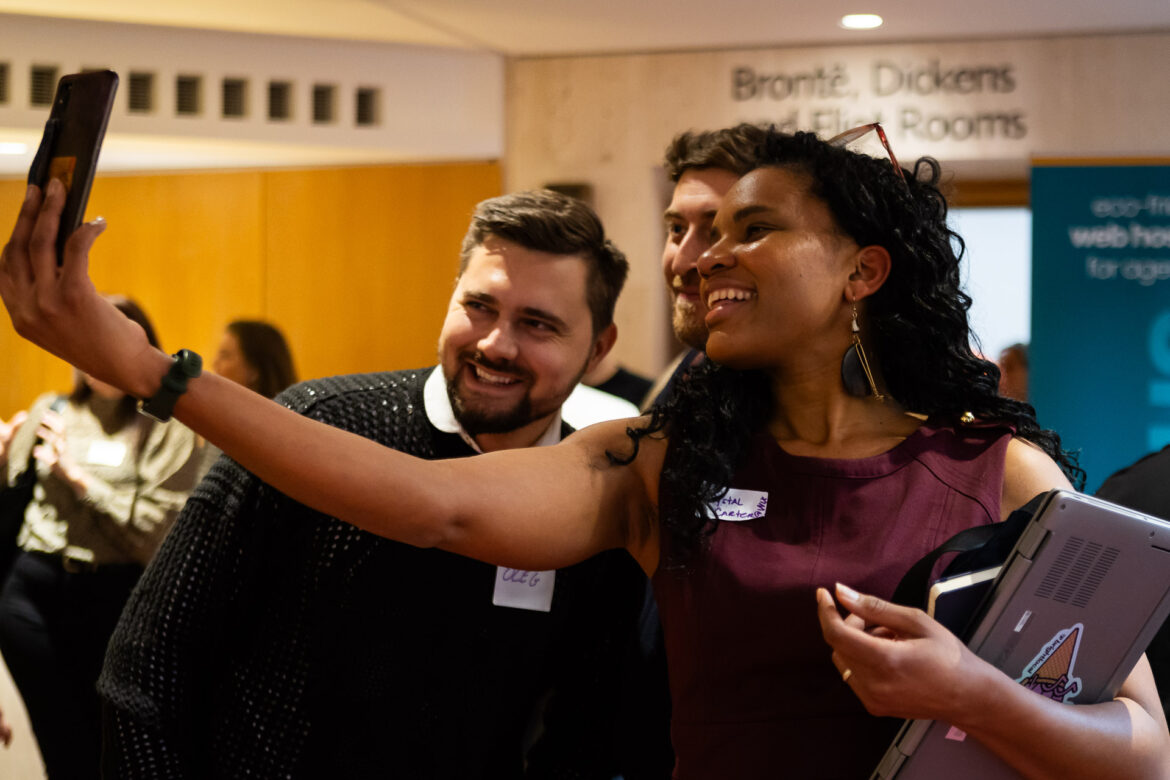
One things that just keeps popping up – that we still haven’t solved – is that fact that one person can take a lot away from a talk while somebody else can feel short-changed.
We sometimes hear that people feel that our session descriptions set expectations that don’t get met:
“Some sessions I felt didn’t fully deliver on the promise of their title. I think this is important when you’re ‘selling’ the sessions with quite compelling titles. Maybe the informal nature of some of the sessions means there are less actionable insights or more opportunity for speakers to go off piste which could be a positive or a negative. This is not a major issue but the one thing I felt could be improved! Happy to discuss further.”
This is the biggest thing I want to solve with our conferences because it keeps coming up and it’s potentially very damaging.
But it’s also the hardest to solve for a few reasons.
- Firstly, some people sat in the very same talk will walk out speaking in tongues and rapturously praising the wisdom that was handed down. Were you in the same room?
- Secondly, you can’t help but feel you’re actually getting down to the bare metal of, “What is a conference anyway?” Is it pure information delivery? Is it softer inspiration? Is it a live version of a podcast? Is it something in between?
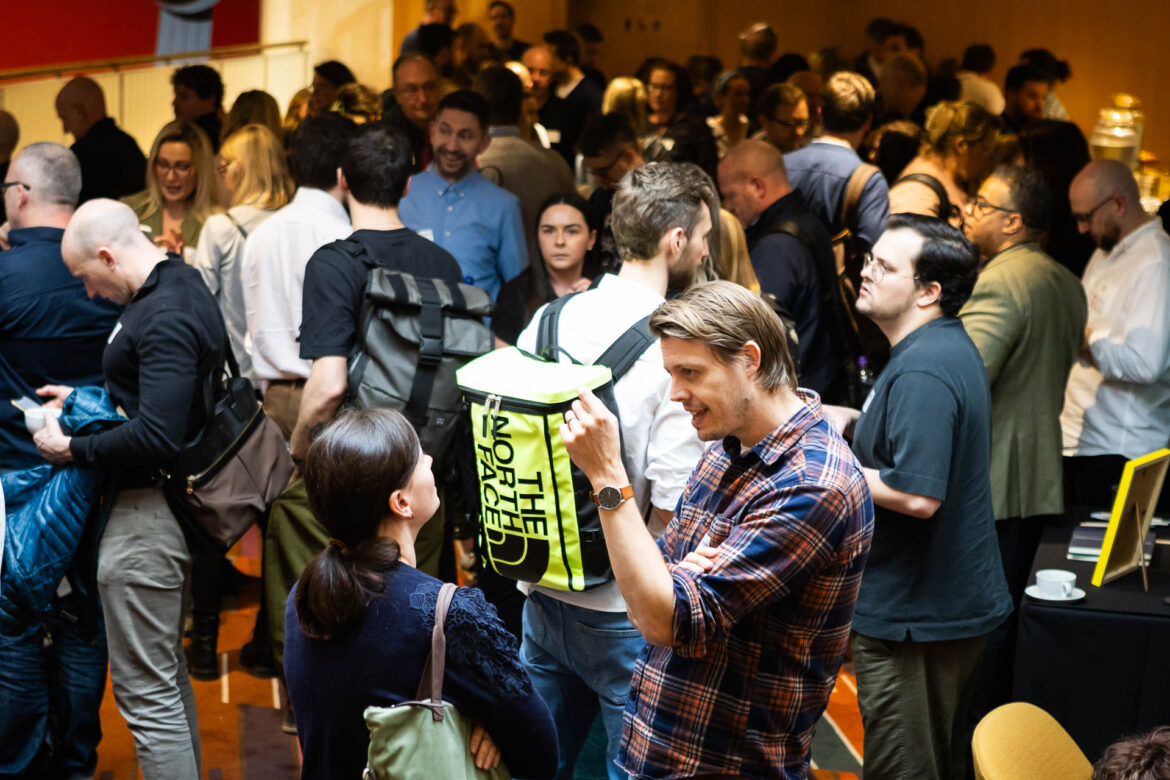
When you attend a conference, I always imagine there are two channels being broadcast at the same time. There’s an “A Channel” and a “B Channel”.
- The A Channel is what the speakers say on stage. It’s the advice people share, and the quotes they put on the screen, and maybe a book recommendation that you take a photo of on the slides.
- But the B Channel is what’s happening in your head. It has nothing to do with what’s happening around you. You’re connecting the dots and thinking of things unique to your situation and your business. Puzzle pieces are slotting into place for the first time.
People make the decision to attend a conference (and justify it to themselves) for the A Channel stuff – but what they’re actually getting most of the time (even if they aren’t aware of it) is the B Channel stuff.
I don’t really have a tidy answer yet, but this is probably our main focus for improvement.
🦸 Actions: What we’re doing:
1. We’re going to be very specific with speakers and facilitators about what we’re hoping to cover. At the moment the facilitation packs we use is quite wide open. We’re going to nail things down a bit so there’s certain things we cover and nothing is left to chance.
2. As part of our pre-event processes we’re going to proactively poll the audience and surface their questions, so we know exactly what people are hoping to cover.
3. Because we’re switching to full day conferences, we won’t be in the situation where we run out of time for audience questions. We’ll use technology to get questions and comments from people in the audience during the session.
5: People like breakouts – but they get FOMO
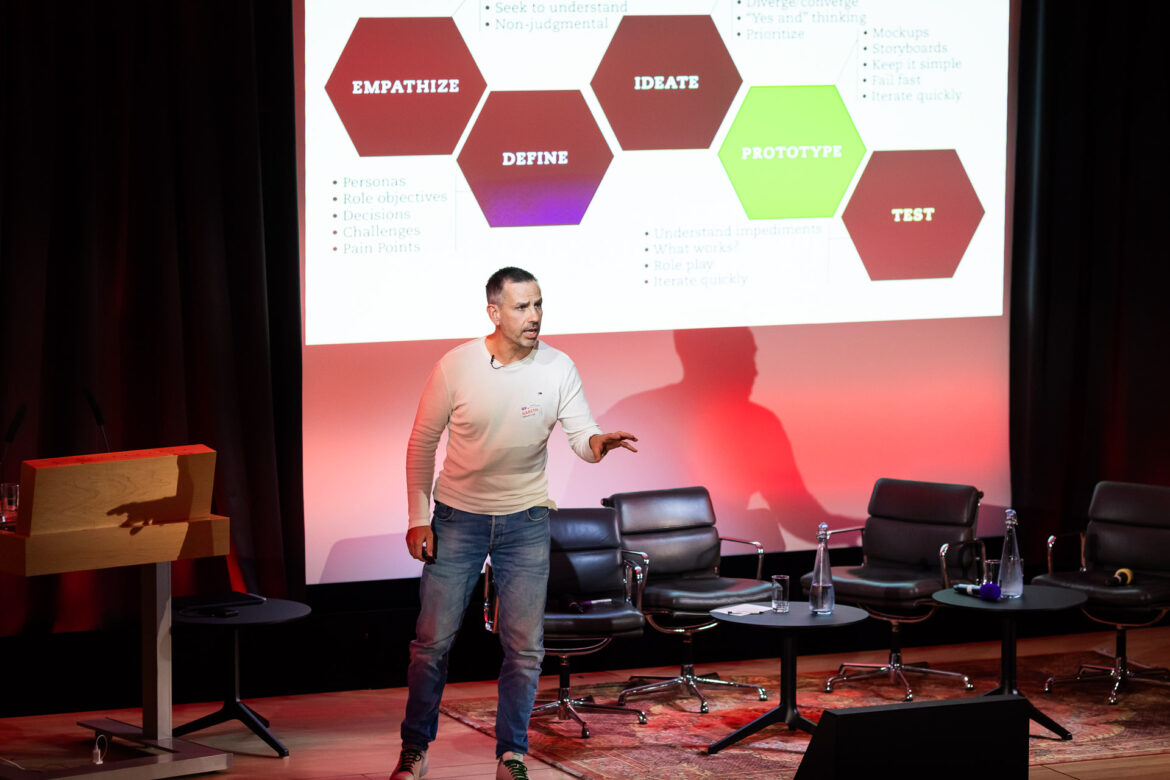
We always joke that our events are a bit like Glastonbury, in that you can’t do everything. We have different breakout sessions that you can choose to attend.
But people keep saying they find it hard to decide which to attend, and they get nervous that they made the wrong choice.
“I really enjoyed the presentations I attended but I am left with that nagging question of, did I attend the right talk?”
🦸 Action: What we’re going to do in future is repeat some of the sessions. We’ll have to be a bit more organised in terms of timings, and perhaps have people assigned to a certain time slot.
We’ve been reluctant to do this in the past.
It takes more organising, but mainly – because we’re repeating some content – it will make the landing page for the event less impressive because we will have fewer speakers overall.
We do think this will make a better experience on the day, but it might not be a net benefit for us because it might be harder to get people to come. We’ll have to suck it and see.
6. Here’s some other interesting feedback
There’s always some interesting feedback we aren’t sure what to do with. Here’s some random things we captured that you might be interested in.
a) “Don’t run your event the day after another agency event “
One person said we should have checked what other events were on around ours, because our friends at The Wow Company ran their event the day before ours:
“Next year, maybe check what other events are on around the same time as I attending The Wow Company’s event the day before to hear the results of their ‘State of the Agency Nation’ report… so it had a similar feel to your event and also some of the same speakers.”
This did make us smile. We do try to avoid clashes with other events, but *cough* in this case ours was scheduled first. We do put on a lot of events though, so sometimes it’s unavoidable.
b) Don’t mention Fiverr
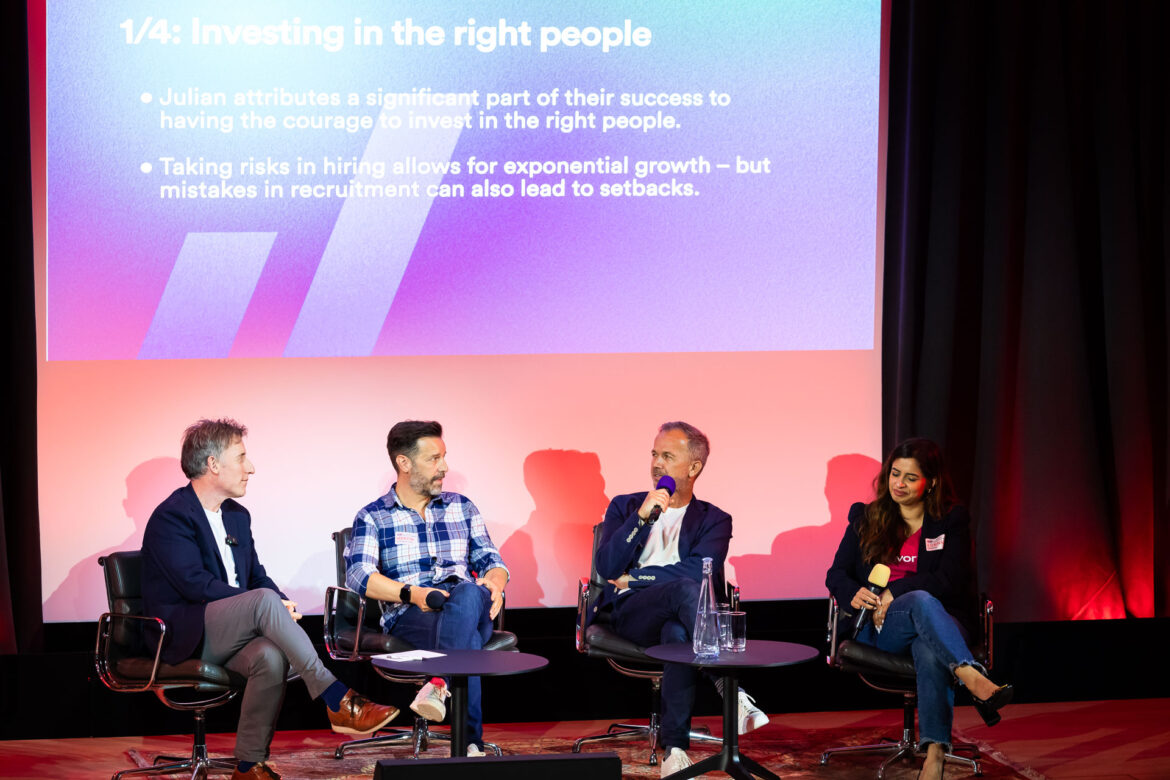
During the conference I made some self-deprecating jokes about how certain visual materials were made using Fiverr. One person picked me up on this:
“There were a couple of references made to the work you’d had done from Fiverr. Sure, there’s absolutely valid uses of Fiverr as a platform. All I got from the Fiverr references was that you’re arranging an event for higher end agencies about growth but aren’t using them yourself and instead use the platforms which can be daggers to an agency’s heart when our clients turn to us and say, ‘how much!'”
I thought this was interesting! We do use Fiverr in our business because we sometimes have a really specific one-off tactical need and I just want to grab something off the shelf.
Not sure I’ll hide the fact we use gig platforms, but I’ll be mindful of it for sure.
c) Don’t have animated GIFs

For some reason I hadn’t realised that Keynote on the Mac supported animated GIFs until two days before the conference.
So obviously I made sure that every slide had a smooth, looping Agency Hackers logo in the top right corner.
Big mistake!
“Please, please, please remove the animated Agency Hacker’s gif in your presentation. Every time that came on the screen and moved I got distracted.”
Done! The animated GIFs are gone.
Conclusions
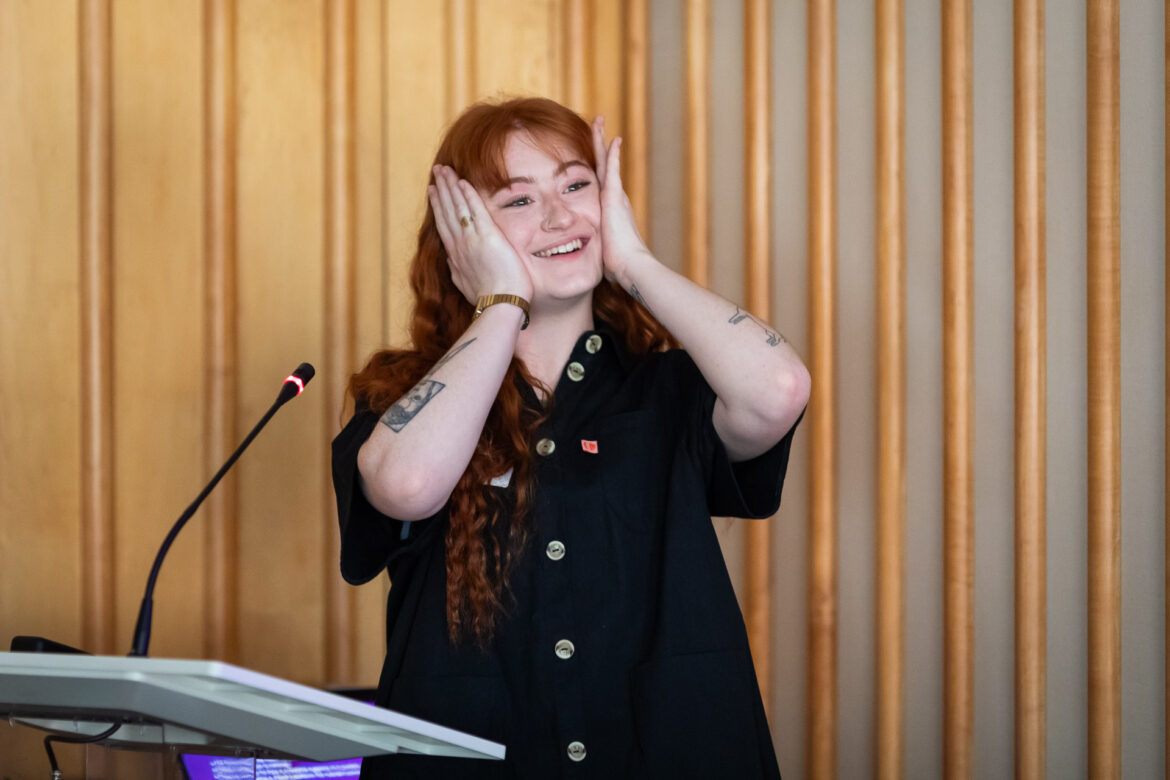
It is hard asking for feedback. We always do it – and it never, ever gets easier. But we are always glad we did.
When you run an event, everybody you meet on the day shakes your hand and tells you it went great. That’s because they are very nice! But then you send out the feedback form – and when the scores start to roll in the next day, it can really bring you down to earth.
You realise that few things are never the home run you hope they will be. Some things you did not deliver on. For a while it feels really bad!
But then you read the comments carefully and you start to feel lucky to have such a wise community of business leaders giving you what is essentially free advice.
Our next live conference is Clockwork – the agency operations conference – at The British Library on Tuesday 11th June. Hope you can join us and see how we’re implementing some of this feedback.
“I love the authenticity of the event and the openness to feedback and continued improvement – sharing what you are doing differently based on feedback is great as it means the attendees feel heard and encouraged to come with you on the journey to the perfect event (which probably doesn’t exist – but great to strive for!!).
Thanks again for having me – love this kind of event, so let me know if there are any other events I can support you with.”
Agency leader attendee

Join 3,000+ agencies
Get the Agency Hackers Newsletter, and read candid stories from other agency leaders.
Upcoming events

Join 3,000+ agencies
Get the Agency Hackers Newsletter, and read candid stories from other agency leaders.
